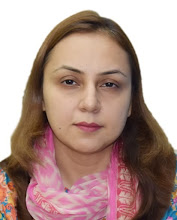The Online Radio Station
23rd June 2022
The online radio station is a great opportunity for educators, teachers and students to not
only reach a wider and authentic audience but to create interactive content for use by all educators.
This blog post will review the tools used in podcasting, the purposes of podcasting and the process of
creating your own schools online radio station.
As shared earlier, podcasting is like hosting a show online. The podcasts are uploaded online on a
podcasting site and anyone around the globe can listen to them either on the mobile or any other device.
As far as recording a podcast is concerned, you only need a computer, a laptop , headphones,
Audacity and an internet connection. This term comes from a combination of ipod and broadcasting.
Unlike an internet radio, you do not need to tune into a broadcast, you just need to download a
podcast on demand from a RSS feed which automatically downloads the podcasts on their computers.
You would need the following resources for the podcast, Audacity, Podbean, Headphones
or microphones, content and an internet connection (blog post no 44 has more details on podcasting).
Audacity to record an audio file.
Podbean a site to publish your podcasts for free.
Headphones or microphones to record the podcast.
Content that needs to be recorded.
An internet connection
There is a lot of evidence to prove the immense benefits of podcasting in schools. It is easy to
use and anyone with a little training can start creating their own podcasts. Podcasting can be used
by both students and teachers. Students can use it to create their chapter wise summaries or create
their notes. Teachers could record their lectures or notes or guidelines and share these as podcasts
on their podcasting site. Students could start their weekly or monthly newsletter and record their
podcasts about the activities in school. Some of the other activities include the following:
Teachers could create podcasts for sharing announcements.
Students can listen to notes or lecture from a missed class.
The school can use podcasts to share updates with parents.
Students and teachers can listen to already existing podcasts.
It can also be used for interviewing people or recording conversations.
It can be used for story telling. Schools could have a story telling channel, where
student share stories related to culture, morals , ethics etc
Podcasts can be used by students to share their research.
Podcasts can be used to improve reading skills.
Lets now explore some radio stations online that I was able to create after exploring podcasting.
One of the online radio stations that I created was about sharing new innovations in the field
of education technology. The online radio station was titled “Coffee Time with Technology”,
after exploring the new innovations in the HundrED.org website I used to summarize and
explain in my own words the innovation, sharing the key benefits of introducing the innovation
in schools in Pakistan. It was public so everyone around the globe could listen to the podcasts
online. There was a podbean site created for uploading the podcasts. These were recorded in
Audacity and shared online on the site.
Another interesting online radio station was created for students at AIS.
These students used to share their learning experiences weekly in the form of a podcast.
The podcast used to be recorded on Audacity and uploaded online on the podcasting
site created on Podbean. Students from various classes recorded podcasts on topics
from different subjects, including language, maths, science, on elections etc.
These were one - two min podcasts that the students enjoyed while recording.
They had to practice once, listen to their own voice and then re - record. It helped
build their confidence. Also they had to write and prepare a script before recording
the podcast. It helped improve not only writing skills but also reading skills.
I saw a lot of improvement in the way students shared their learning experiences,
some of them regularly recorded their podcasts.
Another interesting online radio station was created during my LUMS MPhil ELM program.
This was an initiative to enhance numeracy and literacy skills of students in pre school
in grade 2 at a local government school. We as a group of three students had planned
interactive activities for students in grade 2 , we used varied resources including play dough,
worksheets, toothpicks, online app etc At the end of the lesson students were supposed
to record their podcast, sharing their learning experience in either Urdu or English.
It was great to see them at least trying to explain what they had learned even in Urdu,
it helped build their confidence. It was a very different learning experience for them.
These were three different online radio stations that were created for three different
purposes for three different audiences. The content on all three was different. The content
is available on the websites and can be used by anyone anywhere in the world. The details
are in the link below, you can explore all three online radio stations and choose to create one
for your own school tool.
Enjoy reading till my next blog post soon InnShaaAllah.
Regards and prayers
Sheeba Ajmal

Thanks for sharing wonderful information nissan magnite sales
ReplyDelete